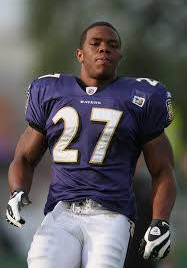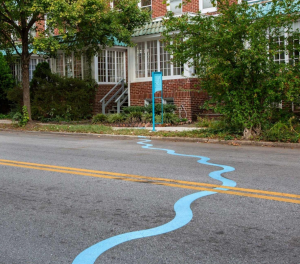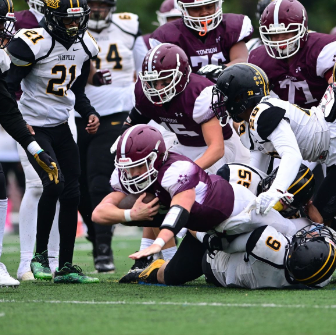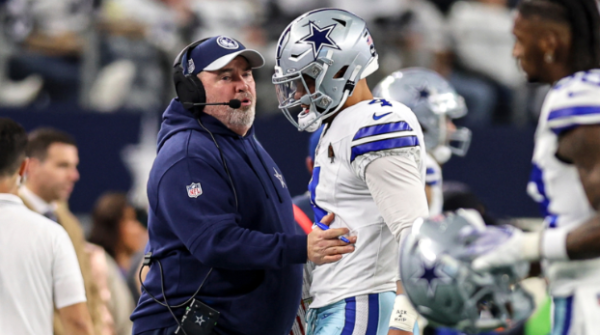Cross Country – The 10 Stages of Pain
The Boys and Girls Cross Country runners may secretly be some of the toughest students at Towson High School. Here’s why.
I present to you the ten stages of cross country pain:
1. THE WARM-UP LAPS
– No one wants to injure themselves during a race. For cross country, that means running a race before the race. The warm-up for a meet is jogging through the three mile course all in preparation for running through the three mile course.
2. THE NERVES RIGHT BEFORE THE RACE
“Before races I used to get really nervous and throw up.” – Johanna Admiraal
– All the work you have put in is about to show itself off. Is the course going to be difficult? Will I get off to a quick start? Who is going to pace me? All of these thoughts are rushing through your mind. The suspense is palpable. You line up at the start. Ready. Set. Go! Boom! The gun fires and everyone starts sprinting their hearts out.
3. FLAILING ELBOWS
“I’ve been elbowed before and it sucks.” – Corbin Miller
– Especially in courses like our very own Towson course, the first 100 meters are utter mayhem. Everyone is jockeying to get their position in the race and that means some pushing and shoving. The occasional elbow to the side is an all too common occurrence.
4. THE FIRST WAVE OF FATIGUE
“After I settle into race pace, the pain starts to slowly creep up my legs and I can tell it’s gonna be a doozy.” – Evan Flickinger
– Everything is going well. You’ve sprinted out to a good start, and you’re cruising at race pace. Slowly your legs start to feel like molasses is being poured into them. You’ve hit the first wall. Like all apt cross country runners, you know the only course of action is to run through the pain, keeping the same pace.
5. OH HILL, NO
“My legs don’t hurt when I run, but this is Hereford so I’d just run the dip [Hereford’s massive hill] twice and my legs were dead. I was gasping for breath while running up the final hill and I still had to push myself further.” – Vaughn Parts
– Here it comes, looming in the distance, a hill. Your legs already feel like jelly, but you know you have to get up the hill as quickly as possible. As you approach the base, your body quivers in fear. As you ascend to the summit you can feel the fibers of your thighs teetering on the edge of defeat.
6. THE REALIZATION
– You’ve survived a hill and you’re about halfway through the race. The splitting pains in your legs have simmered to a dull ache. You’re feeling pretty good. That is until you realize you have only finished half the race. All of that energy and the race is only half finished.
7. THE SECOND WAVE OF FATIGUE
“If I am not tired, then I am not doing it right.” – Matthew Hannan
– Every ounce of your being is focused on keeping your pace. You can’t slow down. The pain in your legs is back and it has splintered its way into every part of your lower torso. You come across a thought; in cross country races there are no runner’s highs, only runner’s lows.
8. IT”S ALMOST OVER
– Your legs scream, “Please stop.” You’d tell your legs to shut up but you’re wheezing too much to speak. You’re approaching the finish and you don’t even know why you run cross country.
9. THE FINISHING PAIN
“Every time I kick at the end of the race I puke.” – Emily Eastman
– You can see the finish line in the distance, about 400 meters away. It’s time for the final kick. The air is filled with high pitched screams of spectators telling you to sprint as hard as you can. Your body is filled with the screams of muscles telling you to stop. You shut everything out of your mind bolt for the finish.
10. THE LINGERING PAIN AFTERWARDS AND THE PAIN THE NEXT DAY
“After every race it feels like my legs are on fire, and I sit down to try to make it go away, and it doesn’t.” – Jon Ellis
– It’s over. You’ve just crossed the finish line. You can barely stay afoot, so you hunch over in utter exhaustion. People keep pushing you forward, but all you can think about is the radiating ache throughout your body. It gets worse. The next day you’ll wake up and every muscle that has strained itself in competition is crying with soreness.
“If you think you can do cross country, you probably can’t do cross country.” – Cole Katz


















